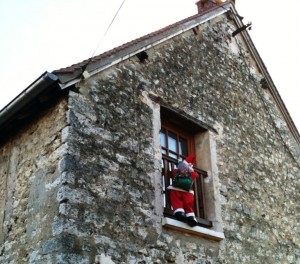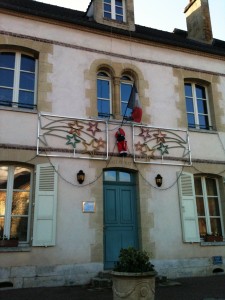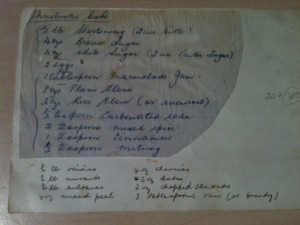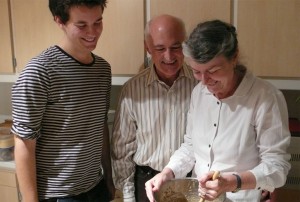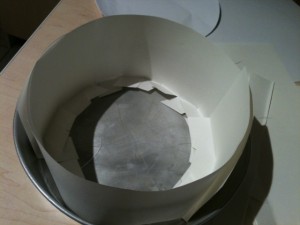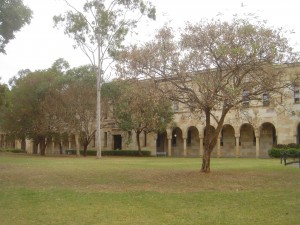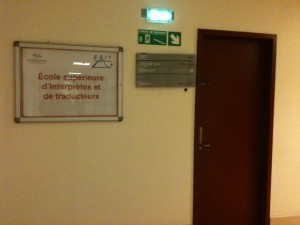 I believe that I reached a turning point in my history as an Aussie in France today. The butcher gave me exactly what I wanted. An entrecôte, well hung (the best meat is always a dark red colour and not bright red which means it’s too fresh), 600 grammes. It weighed in at 595 grammes and he didn’t even ask where Relationnel was. I would have forgiven him for that, mind you, because after my first attempts to buy meat in Rue Montorgueil , I stopped going by myself and now just mostly tag along with Relationnel because he’s French and the butcher gives him what he asks for.
I believe that I reached a turning point in my history as an Aussie in France today. The butcher gave me exactly what I wanted. An entrecôte, well hung (the best meat is always a dark red colour and not bright red which means it’s too fresh), 600 grammes. It weighed in at 595 grammes and he didn’t even ask where Relationnel was. I would have forgiven him for that, mind you, because after my first attempts to buy meat in Rue Montorgueil , I stopped going by myself and now just mostly tag along with Relationnel because he’s French and the butcher gives him what he asks for.
It’s not that I don’t speak French. But I have just enough accent for people to know I’m not a local. I didn’t have this problem when I lived in the suburbs of Paris. At the market in Nogent sur Marne, I was known as “l’Anglaise” and they liked me and treated me like a normal customer. But after I moved into the centre of Paris, I was suddenly taken for a foreigner. It was most disconcerting particularly since I even have dual citizenship now.
Sometimes people ask me what language I dream in. I’m not sure that I really dream in any language but I guess it depends on what the dream’s about. I’m a translator by trade and when you’re working with two languages all day, you don’t necessarily know which one you’re speaking, let alone dreaming. I can remember once being asked by the French tax department to come and fix up my VAT (GST) cheque which contained an error. I went in and looked at the cheque for a few minutes but still couldn’t see what the problem was. They pointed out that the amount was written half in English and half in French!
When I chose to leave Australia and live in France, I didn’t really know what I was going to. I only knew what I was leaving. I’ve never looked back and never been homesick. That doesn’t mean that I don’t miss my family. I do, especially now that I have four nephews in Australia. But I love living in France. One of the things I like best is that you have greater freedom to be yourself when you live in another country and speak another language. You’re not bound by the same traditions and restrictions. To start off with, you don’t necessarily know that you’re doing something different.
I don’t mean that I want to be outrageous. I just want to be able to act spontaneously without having to worry about what other people say. Once I was in Townsville in the summer and was wearing a fuschia-coloured dress that I bought in France. I was told that it was not a summer colour and that I shouldn’t wear it! I was told in France that I could only serve rice or potatoes with fish and that rice was never served with red meat, only with veal. In a meeting or a class in France, you’re supposed to put your hand up when you want to talk. None of this spontaneous discussion that goes on in Australia. But I’ve noticed in staff meetings now that some of my French colleagues are following my example.
Another thing I like is that when there are differences, you ask yourself why. And that must surely help you gain a better understanding of people and life in general. It certainly makes you more tolerant and open-minded. Some traditions were developed for reasons that are still valid today, while others no longer make any sense. When you have the experience of two different cultures, you can choose the best of both worlds!





